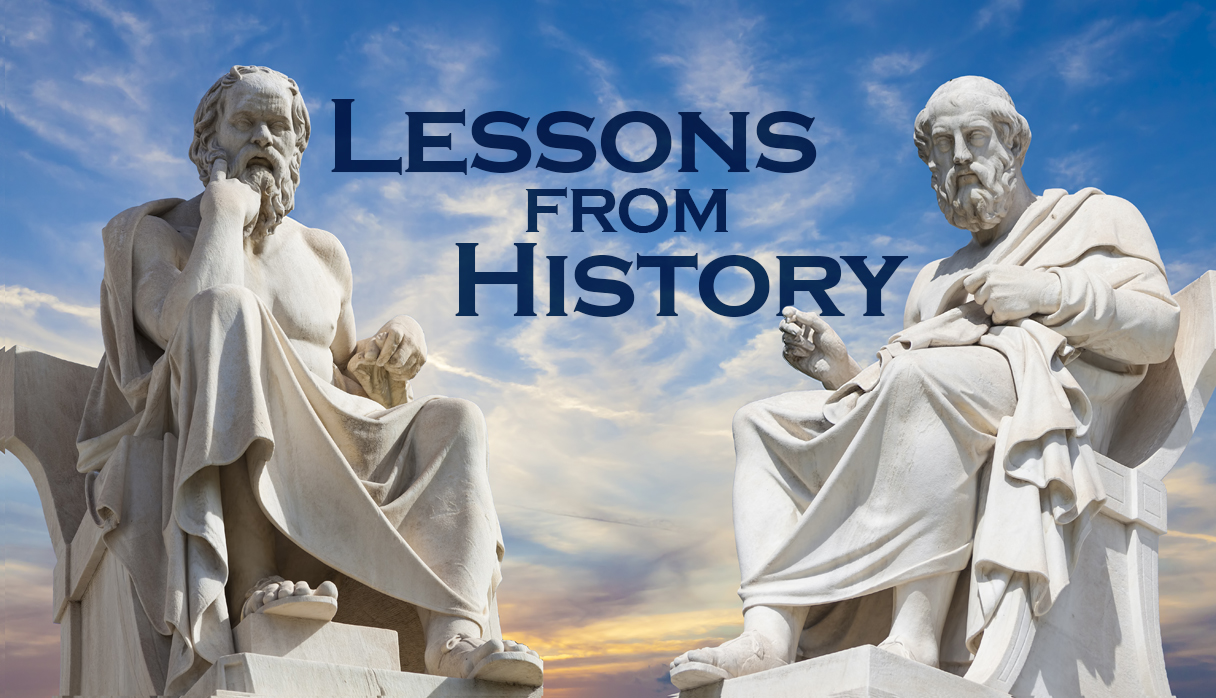
What would Plato and Socrates say if they could observe us from the heavens today?
Much of what was written in Plato’s Republic can be applied to us in the present as Plato defines justice, its role in the world, and its relationship to happiness. He maintained that happiness is achieved through moral thought and conduct. Virtue is the act of recognizing the difference between right and wrong through reason. Wisdom — knowledge of what is true or right, judgment, and insight — was the most important virtue.
Socrates, Plato’s disciple, observed that virtue — as seen through the attitudes and character traits by Athenian citizens — were all too often geared towards wealth, power, and capacities for self-indulgence to the detriment of public morality and community well-being (1). Yet it was Athenian pride, love of honor, and their quest for knowledge and truth that laid the philosophical foundation for Western civilization.
What lessons can we learn from history as we prepare to vote for a government of “We the People” in 2024?

Athenian quest for power and control led to the Peloponnesian War
Democracy existed for two centuries in ancient Athens. Its decline began as the city states that made up the Hellenistic Empire of Greece competed and warred with one another. Philip II of Macedonia saw that this weakened the individual states. Over time, he was able to gain control of some of the states through diplomatic alliances that offered them protection. Others, he conquered with a highly trained army of professional soldiers. King Philip became the sole ruler of Greece in 338 BCE.
His son, Alexander the Great, went on to enlarge the Macadonian Empire by conquering a vast expanse of lands, including Mesopotania, Egypt, Syria, parts of India, and the Persian Empire. With him went Greek ideas and culture. His tutor, Aristotle, was one of the greatest philosophers of all time. He furthered Plato’s beliefs by writing that the human mind had the capacity to use truth to attain the rational and virtuous ordering of human affairs. He wrote that the polis, or community, flourishes with happiness, which is the result of living well.
Democracy existed for two centuries in ancient Athens. Its decline began as the city states that made up the Hellenistic Empire of Greece competed and warred with one another. Philip II of Macedonia saw that this weakened the individual states. Over time, he was able to gain control of some of the states through diplomatic alliances that offered them protection. Others, he conquered with a highly trained army of professional soldiers. King Philip became the sole ruler of Greece in 338 BCE.
His son, Alexander the Great, went on to enlarge the Macadonian Empire by conquering a vast expanse of lands, including Mesopotania, Egypt, Syria, parts of India, and the Persian Empire. With him went Greek ideas and culture. His tutor, Aristotle, was one of the greatest philosophers of all time. He furthered Plato’s beliefs by writing that the human mind had the capacity to use truth to attain the rational and virtuous ordering of human affairs. He wrote that the polis, or community, flourishes with happiness, which is the result of living well.
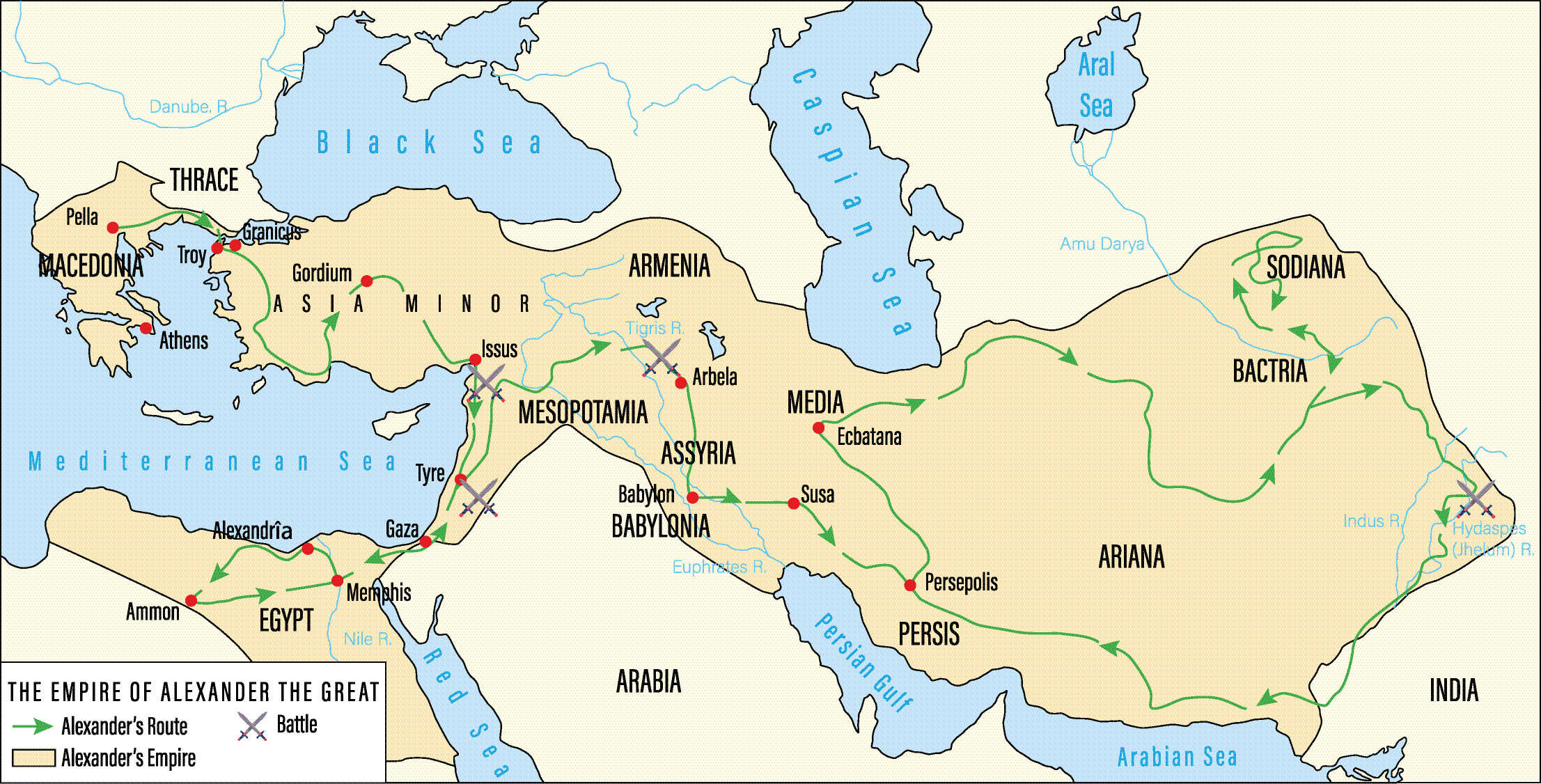
Even after the Roman troops conquered the Macadonian Empire in 31 BCE, Greek philosophy endured. The conquest of Constantinople and the capture of the Byzantine Empire by the Ottoman Turks in 1453 brought an end to the Hellenistic Age. But its philosophy is very much alive today!
During the Age of Absolutism kings ruled by divine right. No person had the right to question or oppose their rule. Monarchs were not accountable to any earthly authority. Their right was derived by virtue of God’s authority (2). Born to rule, they were not subject to the will of the people, to the aristocracy, or to anyone within their realm. By leveling taxes, they could establish standing armies, wage war, and protect a system of lucrative trade under a system of mercantilism. In 1215, a revolt by the barons and lords of England, with the support of the Archbishop of Canterbury, forced King John to set his seal to the Magna Carta. It established laws that limited the power of the English monarchy.
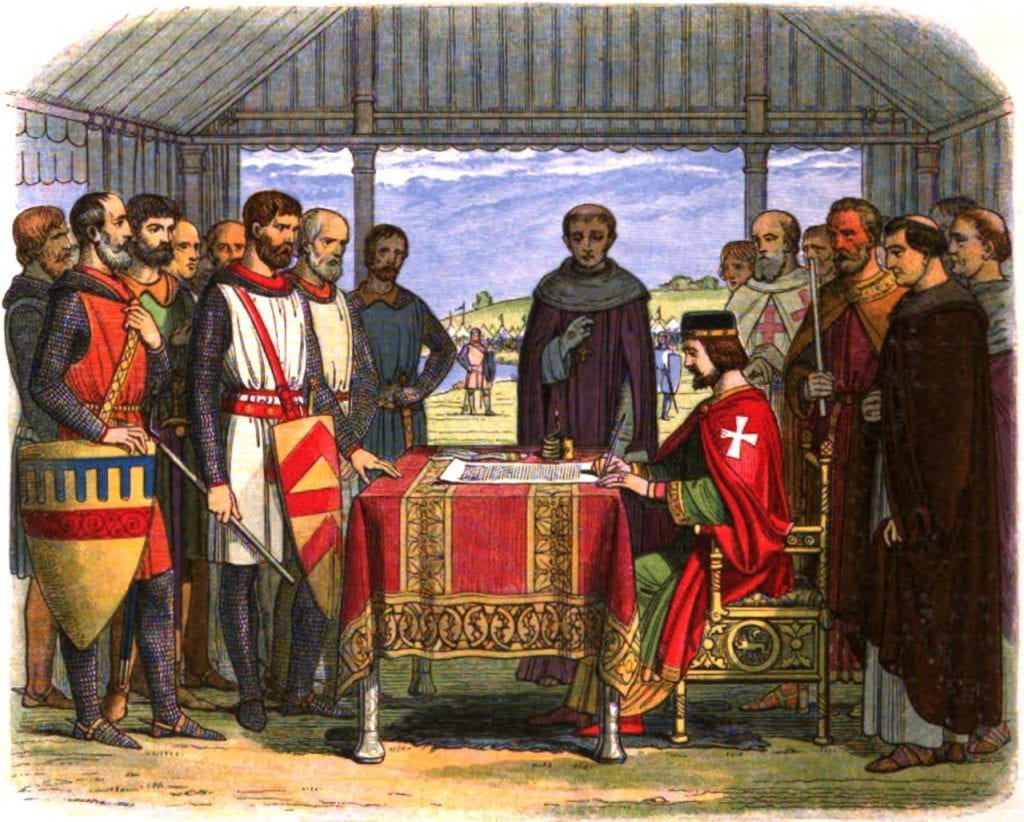
The Magna Carta was followed by The Petition of Right in 1628 and the Habeas Corpus Act of 1679 which further ensured the people protection under due process of the law. The Glorious Revolution brought William and Mary to the throne of England under the English Bill of Rights in 1689. This further limited the power of the monarchy, and gave rights, including the right of trial by jury, to its citizens.
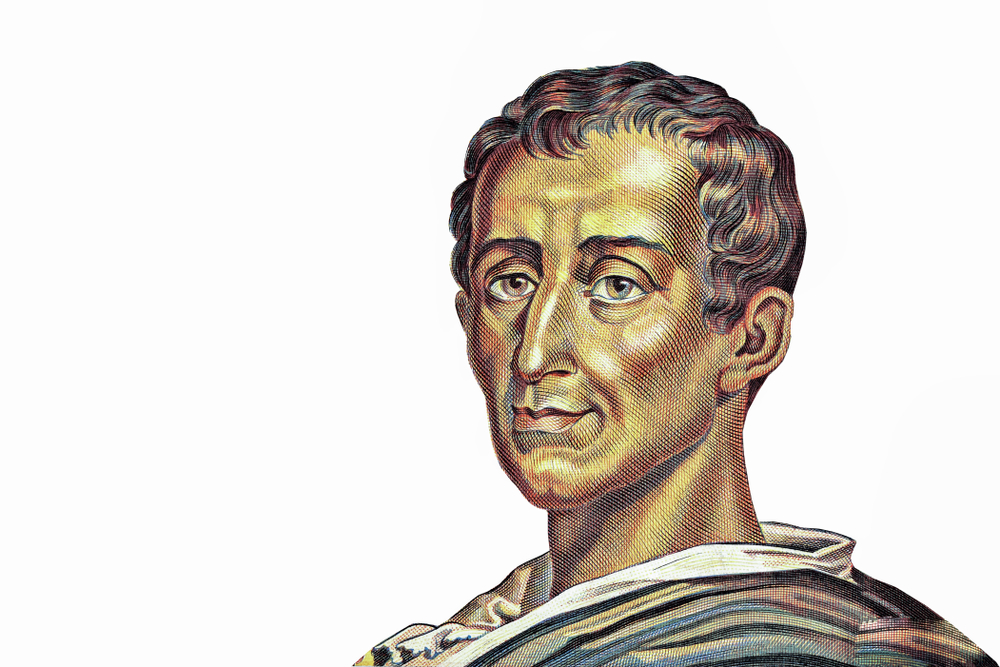
Montesquieu calls for civic virtue in the Spirit of the Laws
The Age of Enlightenment in the late 17th and 18th centuries was a philosophical movement that laid the foundation for modern constitutional democracies. It is based on the belief that good government should be founded on the consent of the governed. Montesquieu, in his Spirit of the Laws (1748), writes that democracies require the population to possess civic virtue — that of valuing public good above private interest. He believed that despotism was a singular danger to democracies, and that it could be prevented by the rule of law (3).
Ignoring petitions to Parliament regarding the rule of law in accordance with the English Bill of Rights culminated in the American Revolution. Referring to Enlightenment philosophy, Thomas Jefferson wrote that the pursuit of happiness is an inalienable right of the American people. It is the foundation upon which our principles of government are defined in the Declaration of Independence …
“that all men are created equal, that they are endowed by their Creator with certain unalienable Rights, that among these are Life, Liberty, and the Pursuit of Happiness.”
Yet our infant republic was off to a rocky start.
Our first government under the Articles of Confederation was floundering. Like the Athenian city states, the newly proclaimed sovereign states of America were operating like individual nations, competing against each other, and acting on behalf of their own special interests. As a nation we were deeply in debt, we had no world power or influence, and we were in the midst of an economic depression. During this time of crises, Thomas Jefferson, who was in France, shipped a trunk load of books and historical documents on ancient Greek and Roman democracies to James Madison.
During the Constitutional Covention of 1787, the Articles of Confederation were abandoned. In its place, the U. S. Constitution established a strong central government by and for the people. Under a system of checks and balances, no one person or branch of government could take control. In writing the Constitution, the Founders included a statement in Article II, Section 3 of the Constitution that the president respect the work of Congress, and that
- “he shall take care that the laws are faithfully executed.”

Presidents would be expected to exercise their power in good faith for the public interest; not for reasons of self-dealing, self-protection, personal purposes, or other bad faith (4). No person or political party should be able to obstruct the “rule of law,” or undermine its purpose and intent.
The president was given roles in the legislative process by proposing measures, and signing or vetoing completed bills with an explicit mandate that he shall take care that the laws be faithfully executed. “Faithfully” can be interpreted as the diligent, careful, impartial execution of the executive office.
The Founders established a system of checks and balances so that no one person or branch of government could make the past prologue. No single person or political party would be able to obstruct the “rule of law,” or undermine its purpose and intent.
In a little over 200 years, America has become a world leader and a world power through the genius of its people. Today, we face major issues involving climate change, the environment, wars, and the polarization of ideals and beliefs in America that can be reflected in Socrates observations of morality and community well-being.
In 2024, the people are being influenced by mis-information, by threats of retribution, and “bloodbaths” that would replicate the insurrection and attempted takeover of the Capitol during the counting of ballots on January 6, 2021. The courts are moving slowly in holding key persons responsible under the rule of law.
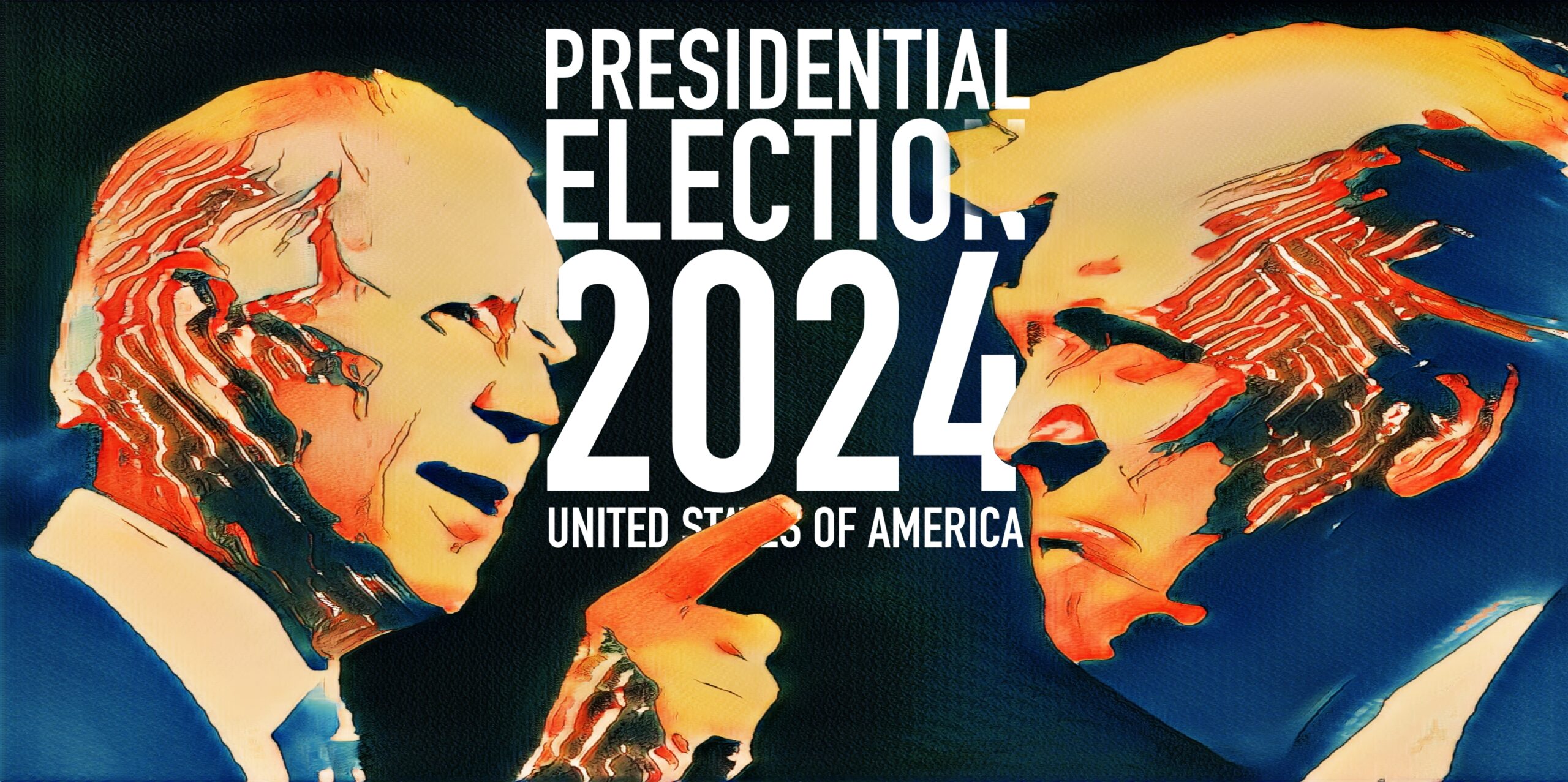
1) Plato’s Ethics: An Overview. Stanford Encyclopedia of Philosophy
(2) Age of Absolutism — The Modern Era, ABC-CL10 2010
(3) Stanford Encyclopedia of Philosophy. Baron de Montesquieu, Charles-Louis de Secondat

